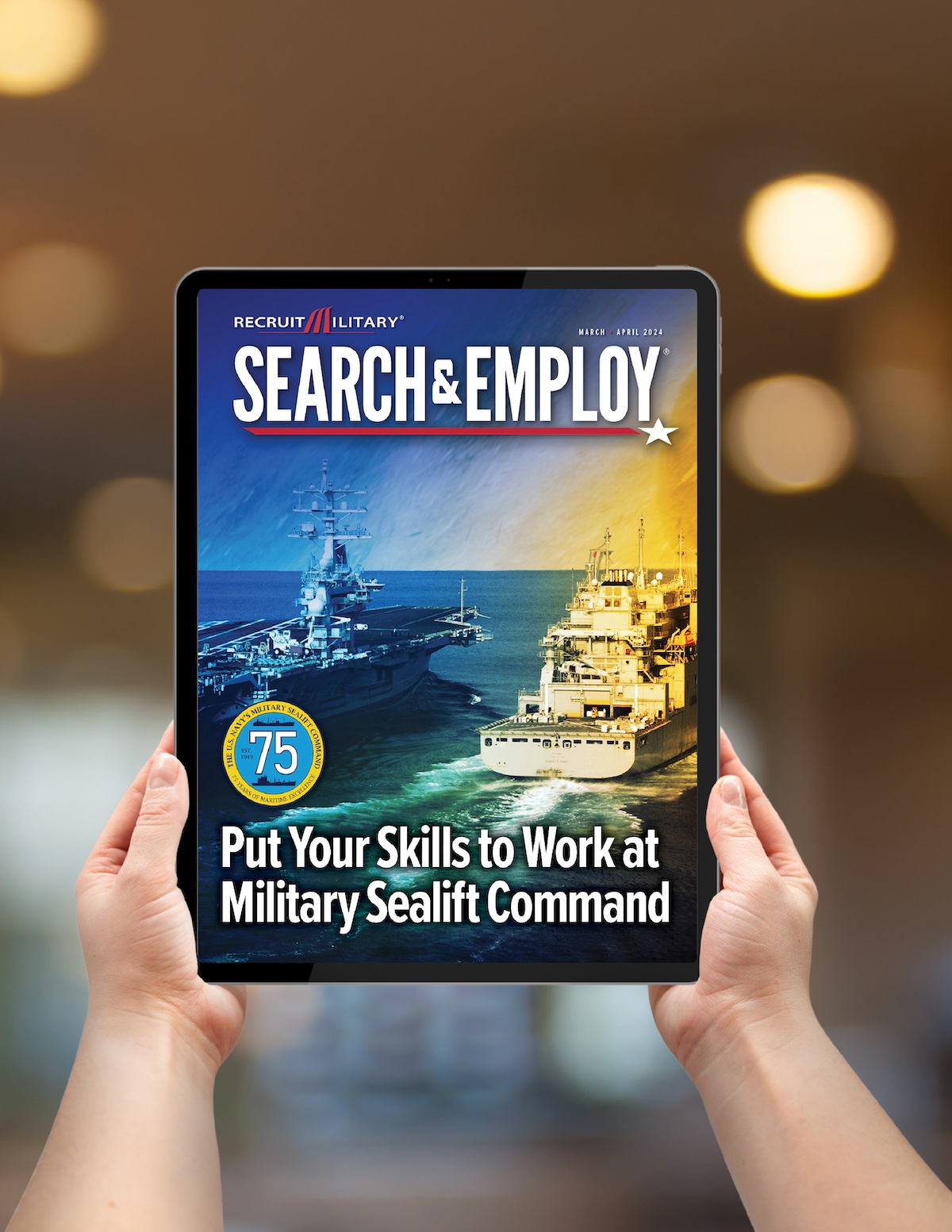RecruitMilitary is a comprehensive military-to-civilian recruiting company that connects military veterans, transitioning military service members, and their spouses with employment opportunities. From government jobs for military veterans to remote opportunities, RecruitMilitary has the resources to set things in motion.
We provide a personalized experience including direct placement services, a job board, and physical and virtual career fairs. Our veteran recruiting experts leverage more than 30 years of experience translating military skill sets for organizations.
Find resume guidance, interview preparation advice, regular job market updates, mentorship opportunities, and more – specifically for the military community.
We offer career advice articles, industry insights, and guidance from experienced professionals to help you make informed decisions and pursue a fulfilling career.
Organizations partner with RecruitMilitary to increase their talent acquisition and recruiting capabilities, and to attract military-experienced talent through a variety of channels, including virtual and in-person career fairs.
We offer organizations a number of avenues for making themselves more visible and appealing to job-seeking members of the military community, including advertising via our website, targeted emails, and Search & Employ® magazine.
Our direct placement services help organizations like yours connect with great, military-trained candidates to quickly fill openings. For those looking to expand their strategy, we also offer a hands-on program through RecruitMilitary Service Solution.
More than 100 job fairs across 30+ cities, military bases, and virtual spaces annually offer veterans, transitioning active military, and military spouses the opportunity to find success in their career aspirations.
Utilizing the unique strengths you acquired during your military service allows our team of experts to assist you in finding the right career fit. Our dedicated system helps translate military experience to civilian career skills and has benefited service members from every branch of the military.
Complete a job board profile, build a resume, and connect with potential employers who are seeking transferable military skill sets.
With more than 30 years of experience connecting employers with military job seekers, we at RecruitMilitary know the value members of the military community bring to organizations. Our military base presence and Department of Defense partnerships help us in our efforts to make those connections. Watch the video to learn about our organization.
More About Us
“I really appreciated the personalized care I received from RecruitMilitary in preparing for the job fair. They helped me make sure my resume was up to date and I had my “ducks in a row” before the event. This was probably the best career move I’ve ever made, just to be honest with you.”

“One of the benefits of working with RecruitMilitary is that you get something tailored to your hiring needs. For me, it has eliminated the days-long search of scrolling through resumes that might not even result in any qualified candidates.”

“RecruitMilitary understands military personnel. They understand what you’re trying to do and how to fit you into certain roles in different jobs. That link between the jobs and the military personnel goes a long way. My RecruitMilitary representative stayed in contact with me throughout the hiring process and I was really appreciative of that.”

Our bi-monthly digital magazine, Search & Employ®, is designed to help transitioning military, National Guard and Reserve members, and their spouses find jobs, market trends, and continuing education opportunities. Read the current issue or back issues below and get access to a variety of guides, articles, and industry news relevant to your job search.
Register now to receive the bi-monthly publication.
Ready to get started on moving your career forward into civilian life? Reach out to the team at RecruitMilitary today!